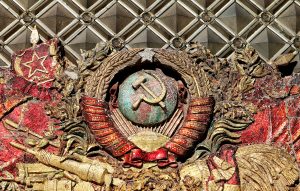Days before the invasion of Ukraine began, Russian President Vladimir Putin delivered a speech justifying what was to come. “Modern Ukraine was entirely and fully created by Russia, more specifically the Bolshevik, communist Russia,” he said on February 21. It was familiar language to those who have been listening to Putin’s laments overs the end of the Soviet Union since his rise to power in 1999. It was familiar and worrying language to the states of Central Asia, too, which have heard the same claims directed their way. In essence, it was the language of a colonizer about the colonized.
In an April article for PONARS Eurasia (Program on New Approaches to Research and Security in Eurasia), scholars Botakoz Kassymbekova and Erica Marat wrote that it was time to question Russia’s imperial innocence. “The Kremlin’s propaganda builds on seeing Russia as both victimized by the West and entitled to regional dominance in the former Soviet territories,” they wrote. “In such Russian imperial imagination, enforcing the Russian language, culture, and rule on non-Russian populations is not colonialism but a gift of greatness.” It’s time, they argued, to strip away that fantasy and see the past for what it truly was.
Kassymbekova, a lecturer at the University of Basel in Switzerland, and Marat, an associate professor at the National Defense University’s College of International Affairs in Washington, D.C., spoke to The Diplomat’s Catherine Putz about how Russia views Central Asia and the importance of decolonizing how both Russia and Central Asia view themselves.
In an April article for PONARS Eurasia – titled “Time to Question Russia’s Imperial Innocence” – you write that in order to “solve Russia’s antagonistic relations with its neighbors, both the Russian state and society need to confront their country’s imperial identity.” What is that imperial identity? And why are the Russian state and many Russian people reluctant to honestly grapple with it?
Kassymbekova: The Russian state has no incentive to deal with its imperialism, but neither, it seems, does Russian society or Russian academia. The reasons for the reluctance to grapple with Russia’s imperialism, past and current, is that Russia has not undergone decolonization. In the 1990s, when the Soviet past was still critically debated, the pre-Soviet past was idealized in popular imagination and the Soviet Union was not perceived as an empire.
In Russian popular imagination, Russia and Russians were victims of the Soviet regime, and Russians were “feeding” and “developing” the Soviet non-Russian republics and regions at the cost of Russians. This is, in fact, the imperial myth that Stalin promoted since 1932 and it became an important part of the Russian national identity. This myth was based on earlier Russian imperial idea of martyrdom and saviorship.
According to this self-representation, Russia did not attack and colonize, but liberated and saved the colonized. The Soviet imperial discourse in Central Asia told the local population that they were liberated from Russian tsarism and prevented from falling prey to British colonialism. But the Soviet imperial myth did not break with the Russian tsarist myth of liberation; instead it built on it.






























